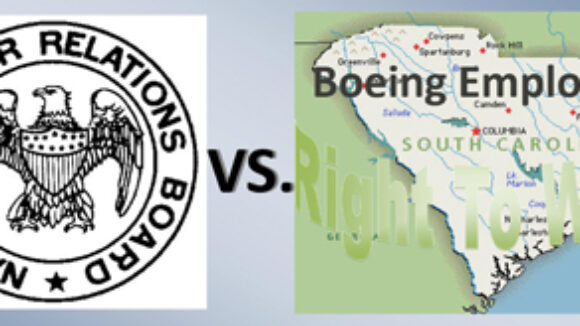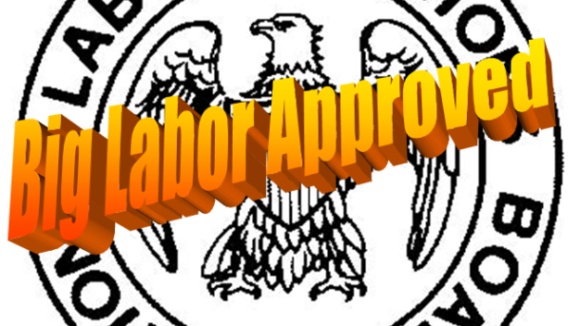U.S. Rep. Gowdy: NLRB continues to pursue an activist, politically motivated agenda thwarting economic recovery
From U.S. House Education & Workforce Committee press release:
NLRB biasis a menaceto business
When so many of our fellow citizens are looking for work and America is competing against other countries to land businesses, the National Labor Relations Board continues to pursue an activist, politically motivated agenda thwarting economic recovery and continuing to place our companies at a competitive disadvantage worldwide.
Virtually everyone is familiar with the most glaring example of overreach and union pandering, which is the complaint against Boeing.
Despite not a single example of job loss and despite not a single worker benefit in Washington State being lost, the NLRB sued Boeing seeking to have it close its South Carolina plant, displace the workers hired, and return the work to Washington State.
That is Exhibit A in proving the NLRB has become a sycophant for Big Labor but is by no means the only piece of evidence.
Currently, union elections take place on average within 31 days of the filing of an election petition. Additionally, unions are victorious more often than not when there is an election, but that is not good enough.
Unions want more, so they persuaded the NLRB to propose sweeping changes to the election process, shifting the balance of power even further toward union seeking employees.
By promoting "rush elections," and ruling that elections can take place in as little as 10 days, the board severely limits the opportunity for workers to hear all sides of the issue and make an informed decision.
Additionally, employers would have only seven days to retain legal counsel and decipher the complex labyrinth of federal labor law before presenting their case before an NLRB hearing officer.
House Education and the Workforce Committee Chairman John Kline smartly introduced H.R. 3094, the Workforce Democracy and Fairness Act, to level the playing field. This legislation requires no union election occur in less than 35 days, thus granting all parties the ability to present their arguments and ensuring workers have the ability to reach an informed decision.

